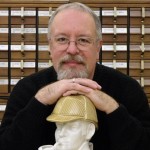
Tim Johnson is a Covenant “preacher’s kid” and rare books librarian at the University of Minnesota. He has an undergraduate degree in history from North Park College and graduate degrees in Library Science and Theological Studies. For eleven years Tim was the archivist for the Covenant Church and North Park University. He is married, has three children, and a twenty-month-old granddaughter.
“Regardless of what moral or theological positions churches hold regarding gay and lesbian sexual behavior, all Christians can and should unite around a commitment to defend people’s basic rights. But the church cannot in good conscience take a passive approach to this question. It is, after all, other Christians who often have taken the lead in this thinly disguised but mean-spirited assault on human dignity. Biblically based Christians who operate out of a more loving and compassionate framework must meet the challenge head-on and forcefully oppose homophobia.” — Jim Rice, Sojourners
What is amazing to me is that the above lines were penned eighteen years ago—and we’re still debating the issues. With this in mind, two seemingly unrelated events from last weekend continued nagging my spirit. The first occurred Friday evening, a retirement party for a colleague with whom I’ve worked closely. It was a delightful occasion held in the air-conditioned pavilion of a downtown park, complete with excellently catered food and drink, sweet cake, and a short program of recognition, including gifts from his friends and a letter from the President of the United States. The second event transpired during the Sunday morning worship service at my church. We were asked to think a bit about why we are a church, why we gather on Sunday. As part of that reflection the congregation was invited to read together the church’s “purpose statement” from its constitution: “We covenant to cultivate a community of worship committed to prayer, preaching and study of the word of God, the celebration of the sacraments, and fellowship across gender, race, age, culture, and class. In so doing we covenant to equip loving, giving, growing Christians to reach out with the good news of Jesus Christ, evangelizing the lost, ministering to those in need, and seeking justice for the oppressed.”
It was the clause “…fellowship across gender, race, age, culture, and class” that grabbed my attention and troubled my soul. It troubled me because Friday night’s party was for a gay friend, on the eve of the Twin Cities Pride festival, I was one of the few “straight” people in the room, and at a guess most of the rest of the guests would have little or nothing good to say about the Church. And it troubled me because I really wonder whether we as a church believe what we say, that we can truly fellowship across gender, race, age, culture, and class. I have a hard time imagining many of my fellow parishioners at Friday night’s party. Impediments in the relationship exist on both sides. If my friend is any indication of the LGBT community’s general view of organized religion then we have a long way to go. There is a suspicion in the community, born of experience, that seems very difficult to overcome.
So I can’t really fathom the “big picture” here. I need to think in terms of small steps, of individual and discrete actions, that put me in “a more loving and compassionate framework.” That, in part, was why I was at the party last Friday night. I was there as a friend, to celebrate a generous and committed colleague. He and I do not agree on many things; we’ve had far-ranging discussions on any number of topics. But when things really mattered, when we got down to brass tacks, it was easy to stand shoulder to shoulder with him. It was easy to stand with him when we were targeted at work through hateful letters, posters, and email by a Christian(?) pastor and his congregation from the Midwest. And it was easy to visit him in the hospital when diabetes and a faulty heart threatened to take him from us. That’s what friends do for friends. I don’t know that he’ll ever darken the church door. It’s not an immediate concern of mine. But his friendship is my concern, something that I can tend to. The rest I offer in prayer, to the tender mercies and grace of God.
It is because of that friendship—along with the relationships I have with many other LGBT colleagues (one of them a fellow“PK”)—and what I trust is a prayerful, careful, biblically contemplative approach to life that I need to now put a stake in the ground; I need to publicly state my opposition to the marriage amendment that will appear on the 2012 ballot in Minnesota. It is, for me, no longer a religious question. It is a question of civil rights, of political process, of friendship, of blessing.
The Preamble to the state constitution reads: “We, the people of the state of Minnesota, grateful to God for our civil and religious liberty, and desiring to perpetuate its blessings and secure the same to ourselves and our posterity, do ordain and establish this Constitution.” Our political ancestors understood the distinction between civil and religious liberties; they were interested in protecting both. They saw this in terms of blessings, not curses. We should continue to be about the business of blessing, of securing rights, not taking them away.